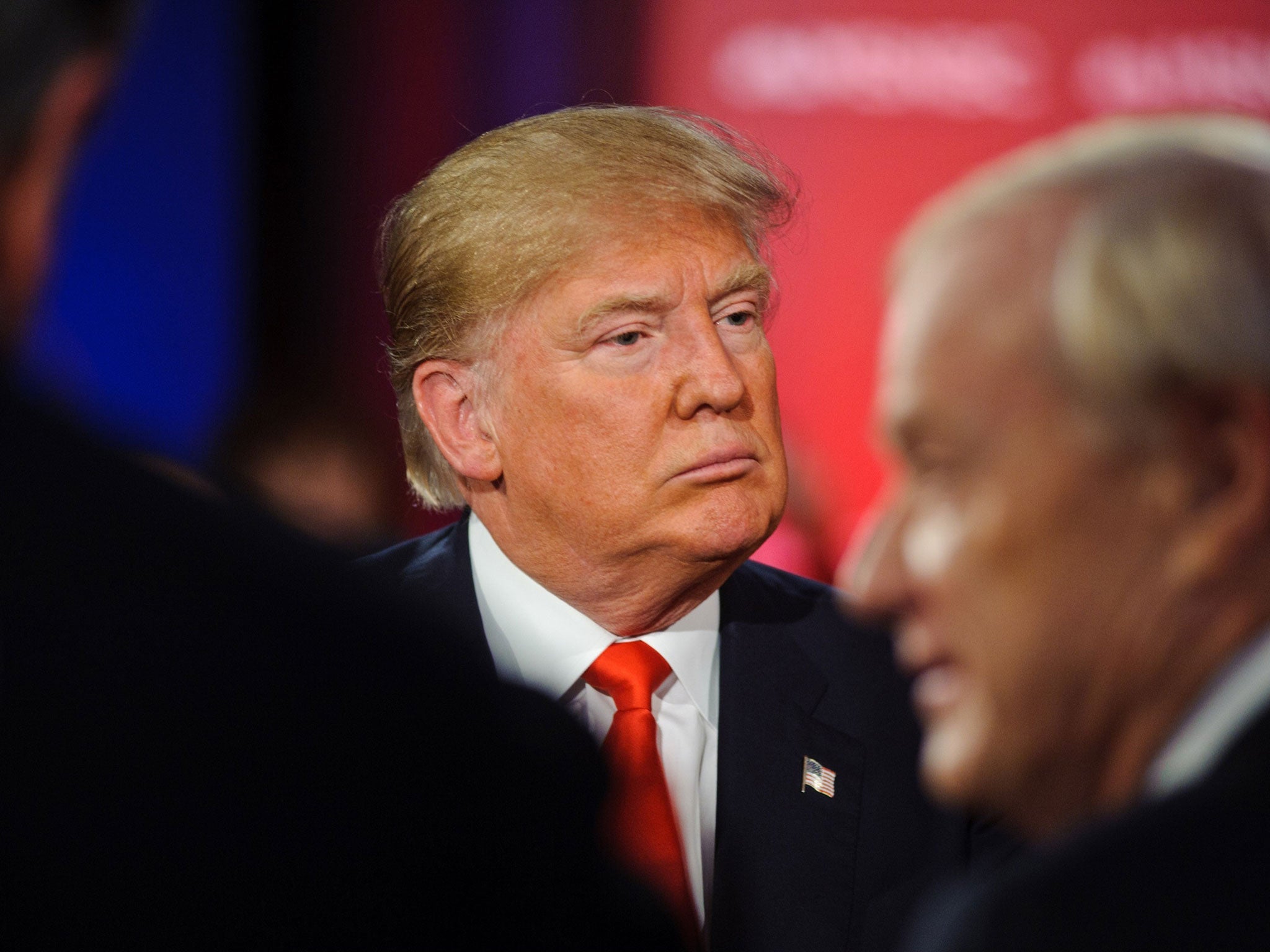Even under Donald Trump, America won't become isolationist
The Donald might dream of sealing America off from the world. Even if he won office, itself a distant prospect, pulling up the international drawbridge will not be so easy

While David Cameron was in Washington for the Nuclear Security Summit, it may well have struck him that this was one of his last visits to Barack Obama’s America. In only seven months’ time, someone else will be sitting in the Oval Office and both the Prime Minister and most other Western leaders surely do not want it to be the erratic and isolationist Donald Trump.
Mr Trump, in predictably loose-tongued mode, fired off another of his hastily improvised foreign policy announcements during the summit, saying it would be no bad thing if Japan and South Korea obtained nuclear weapons. They should start defending themselves; everyone has nuclear weapons days, the Republican mused, so why not the South Koreans? Mr Trump “doesn’t know much about foreign policy or nuclear policy or the Korean Peninsula or the world generally,” Mr Obama responded.
The prospect of a Trump America – distant as that remains – slamming the door, retreating behind fences and leaving the rest of world to do what it wants, as long as it does not directly affect America, is the stuff of nightmares for leaders in Europe, Japan, South Korea, Taiwan, Israel and elsewhere. They have all spent so long sheltering under America’s strong arm that the prospect of that arm disappearing is traumatic. Whatever they – or we – think of the disastrous invasion of Iraq, or of America’s highhandedness generally, the idea of it abdicating its role as the world’s policeman is every bit as disturbing as the collapse of the Roman Empire to the civilised world was some 1,700 years ago.
Mr Trump has tapped into a deep vein in America with his talk of retreat and consolidation, however. Many Americans are feeling pessimistic and blame their country’s vast foreign commitments for a host of domestic ills, from the neglect of manufacturing to the so-called hollowing-out of the middle class. Whether these phenomena are truly connected is another matter, but there are plenty of hearers for Mr Trump’s message that America must look after itself, not the world.
For all that, Mr Trump’s chances of taking the White House, assuming he wins the Republican nomination, remain almost non-existent. Not one poll puts him within a mile of the probable Democrat nominee, Hillary Clinton. His ratings among minorities, women and the under-thirties are dire. Moreover, with another Clinton at the helm, it will be business as usual for Western leaders. Indeed, she will engage with them more willingly than did Obama, who initially talked enthusiastically about leading a strategic shift away from the Atlantic and 'Old Europe' towards the Pacific.
In reality, this great sea-change never happened. Mr Obama kept America out of Syria and was far less trigger-happy than most pre-Trump Republicans would have liked, over Ukraine especially. Yet, as his second term draws to a close, America remains just as stuck with its old entanglements – and its old alliances – as when he came to office. In the autumn of his presidency he is poised to bolster the presence of US forces in Iraq in the hope of nudging the Iraqi army into the ISIS-held city of Mosul. So much for the Asian Pivot.
Of course, the unthinkable could happen in November. Over the campaign, Mr Trump could miraculously mend fences with all the domestic constituencies that he has alienated and the Democrats could implode. However, even if Mr Trump wins – and it is a huge if – he will not be the political reincarnation of Warren Harding and Calvin Coolidge, the two Republican presidents most closely twinned with the idea of American isolationism.
For America to be isolated in the 1920s meant little more than not joining the League Nations. Almost a century on, pulling up the drawbridge will not be so simple.

Join our commenting forum
Join thought-provoking conversations, follow other Independent readers and see their replies
Comments